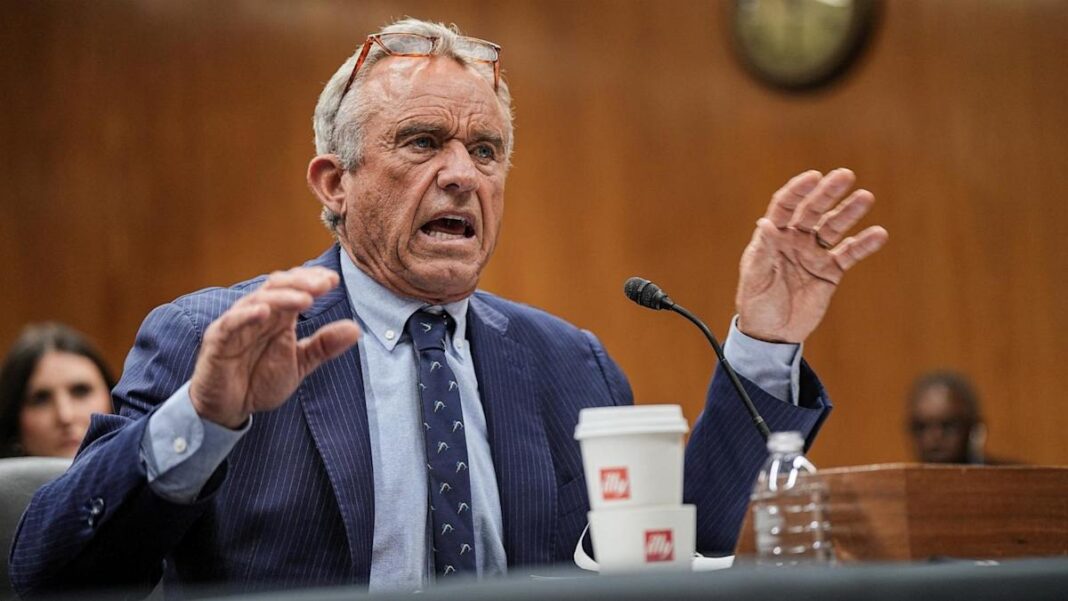The 17 members of a federal vaccine advisory committee, who were ousted last week, argued their abrupt dismissal has “left the U.S. vaccine program critically weakened.”
The group, speaking collectively for the first time since Health and Human Services Secretary Robert F. Kennedy Jr. dismissed them, said his actions “have stripped the program of the institutional knowledge and continuity that have been essential to its success over decades” in an editorial published Monday in the Journal of the American Medical Association.
In an unprecedented move last week, Kennedy dismissed each of the 17 members of the Advisory Committee on Immunization Practices, or ACIP, noting in an opinion piece in The Wall Street Journal that “a clean sweep is needed to re-establish public confidence in vaccine science.”
MORE: White House releases RFK Jr.-led report on chronic disease
Kennedy claimed the panel was plagued by conflicts of interest and was a “rubber stamp” for all vaccines.
Two days later, he appointed eight new members — some with previous ties to Kennedy. A few have previously espoused vaccine skeptical viewpoints, sharing ideas in line with the Kennedy’s prior comments.
Prior to announcing the new members, Kennedy told ABC News the new ACIP members would not be “anti-vaxxers” but “credentialed” scientists and physicians who were going to be “objective” and follow “evidence-based medicine.”
PHOTO: U.S. Health and Human Services Secretary Robert F. Kennedy Jr. testifies before the Senate Committee on Appropriations hearing on the Department of Health and Human Services budget, on Capitol Hill in Washington, May 20, 2025. (Ken Cedeno/Reuters)
Kennedy also said to ABC News that the current list of vaccines that are recommended for children would be re-analyzed by the new ACIP members because he doesn’t trust the science that led to their initial approvals.
The ACIP is a panel of independent scientists and clinicians that evaluates the safety, efficacy and clinical need of vaccines, and votes on recommendations regarding who should get shots and when.
The director of the Centers for Disease Control and Prevention has the final say on whether to accept the recommendations.
Currently, the CDC director role remains vacant, and Kennedy has been making the final recommendations.
“As former ACIP members, we are deeply concerned that these destabilizing decisions, made without clear rationale, may roll back the achievements of U.S. immunization policy, impact people’s access to lifesaving vaccines, and ultimately put U.S. families at risk of dangerous and preventable illnesses,” the former advisers wrote.
The group argued that, despite recent suggestions by Kennedy, health care providers have historically trusted the CDC’s advisory committee to provide vaccine recommendations.
MORE: RFK Jr.’s MAHA report cited nonexistent studies
They noted that 99 of every 100 children in the U.S. have received at least some of the committee’s recommended vaccines by the time they are 2 years old, citing CDC data.
The former advisers cited research showing that routine vaccination of about 117 million kids from 1994 to 2023 likely prevented 508 million lifetime cases of illnesses, 32 million hospitalizations and over 1.1 million deaths.
Those millions of vaccinations equate to a net saving of $540 billion in direct costs and $2.7 trillion in societal costs, according to the group.
The new advisers are set to meet later this month and vote on vaccine recommendations related to COVID-19, HPV, flu, meningococcal and RSV shots, according to the meeting’s federal notice.
The prior members had already voted on recommendations for the RSV and meningococcal vaccines, but the changes were not adopted by Kennedy.
CDC vaccine advisers who were removed from committee by RFK Jr. speak out originally appeared on abcnews.go.com
